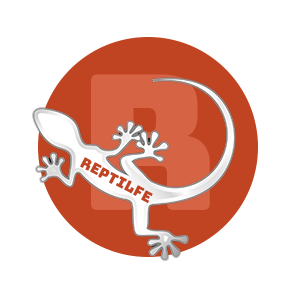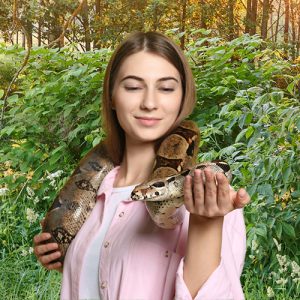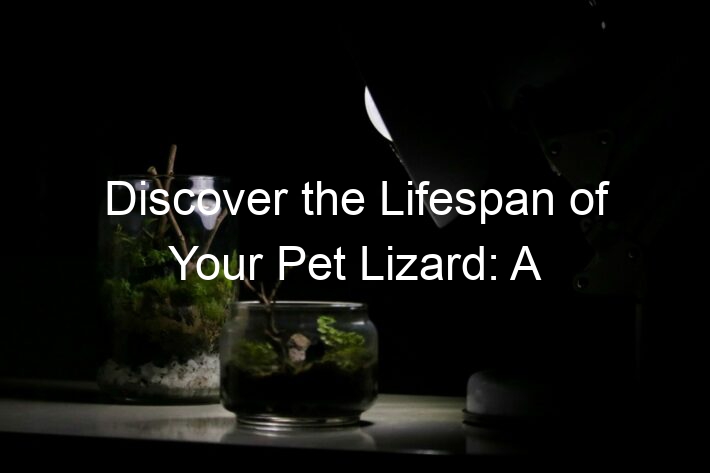Introduction to Bearded Dragon Nutrition
When it comes to caring for your bearded dragon, understanding their nutritional needs is crucial. Bearded dragons, like humans, require a balanced diet to stay healthy and live a long, happy life. This introduction to bearded dragon nutrition will provide you with the knowledge you need to ensure your pet’s well-being.
- Importance of Understanding Bearded Dragon Nutrition
- Impact of Diet on the Health of Bearded Dragons
Understanding the nutritional needs of your bearded dragon is essential for a few reasons. Firstly, it helps you provide a balanced diet that meets all their dietary requirements. This includes the right mix of proteins, carbohydrates, and vitamins. Secondly, it helps prevent health issues that can arise from an improper diet, such as metabolic bone disease. Lastly, it contributes to the overall quality of life of your pet, ensuring they are active, alert, and happy.
The diet of a bearded dragon has a significant impact on their health. A well-balanced diet can lead to a robust immune system, healthy skin, and a long lifespan. On the other hand, a poor diet can lead to various health issues. For example, a diet low in calcium can lead to metabolic bone disease, a common ailment in captive bearded dragons. Similarly, a diet high in fat can lead to obesity and related health problems. Therefore, it’s essential to understand and provide the right diet for your bearded dragon.
In the following sections, we will delve deeper into understanding bearded dragon diets, optimal health for bearded dragons, a comprehensive bearded dragon food guide, a feeding guide, and bearded dragon health care. Stay tuned to learn more about how to provide the best care for your bearded dragon.
Understanding Bearded Dragon Diets
Bearded dragons, like all living creatures, require a balanced diet to stay healthy and thrive. This diet consists of several key components, each playing a unique role in their overall well-being. Let’s delve into the components of a healthy dragon diet.
Components of a Healthy Dragon Diet
There are three main components that make up a healthy diet for a bearded dragon. These are proteins, vitamins, and minerals. Each of these components contributes to the overall health and vitality of your pet.
- Proteins
- Vitamins
- Minerals
Proteins are the building blocks of life. They are essential for growth, repair, and overall health. Bearded dragons get their protein primarily from insects, such as crickets, mealworms, and roaches. However, it’s important to note that not all insects are created equal. Some are more nutritious than others, so it’s crucial to provide a variety of insects to ensure a balanced diet.
Vitamins are vital for a bearded dragon’s health. They support various bodily functions, including digestion, bone health, and immune system function. Bearded dragons need a variety of vitamins, most notably vitamin A, B vitamins, and vitamin D3. These can be found in a variety of fruits, vegetables, and supplements.
Minerals are just as important as vitamins. They support bone health, nerve function, and other vital processes. The most important minerals for bearded dragons are calcium and phosphorus. These can be found in both insects and vegetables, but it’s important to maintain a proper balance between the two. Too much phosphorus can interfere with calcium absorption, leading to health problems.
In conclusion, a healthy diet for a bearded dragon consists of a balance of proteins, vitamins, and minerals. By providing a variety of foods and ensuring that your pet is getting the right amounts of these key nutrients, you can help your bearded dragon live a long, healthy life.
Common Misconceptions about Dragon Diet
When it comes to understanding the dietary needs of bearded dragons, there are a few common misconceptions that can lead to improper care. Let’s debunk these myths and set the record straight.
- Feeding only insects
- Ignoring fruits and vegetables
One of the most common misconceptions is that bearded dragons should only be fed insects. While it’s true that insects are a crucial part of their diet, they should not be the only food source. Bearded dragons require a balanced diet that includes a variety of foods. Insects alone cannot provide all the necessary nutrients for optimal health.
Another misconception is that fruits and vegetables are not essential to a bearded dragon’s diet. This is far from the truth. Fruits and vegetables provide essential vitamins and minerals that cannot be obtained from insects alone. They should make up a significant portion of your dragon’s diet, offering a range of nutrients that contribute to their overall health and wellbeing.
In conclusion, a balanced diet for a bearded dragon should include a mix of insects, fruits, and vegetables. By understanding these common misconceptions, you can ensure your bearded dragon receives the right nutrition for a healthy and happy life.
Optimal Health for Bearded Dragons
Ensuring the optimal health of your bearded dragon is a responsibility that requires understanding and attention. One of the key factors that contribute to the health of a bearded dragon is its diet. Let’s delve into the role of diet in a bearded dragon’s health.
Role of Diet in Bearded Dragon Health
The diet of a bearded dragon plays a significant role in its overall health and well-being. The right diet can impact their growth and lifespan significantly. Let’s explore these impacts in detail.
- Impact on growth
- Impact on lifespan
Bearded dragons require a balanced diet for healthy growth. A diet rich in proteins, vitamins, and minerals is essential for their development. For instance, proteins are vital for their muscle development, while vitamins and minerals contribute to their bone health. A diet lacking these essential nutrients can stunt their growth and lead to health issues.
Just like in humans, a healthy diet can extend a bearded dragon’s lifespan. A diet that is high in fat and low in nutrients can lead to obesity and other health problems, reducing their lifespan. On the other hand, a balanced diet can prevent these issues, ensuring your bearded dragon lives a long and healthy life.
In conclusion, the diet of a bearded dragon plays a crucial role in its growth and lifespan. By providing a balanced diet, you can ensure your bearded dragon stays healthy and lives a long life.
Signs of a Healthy Bearded Dragon
Just like humans, bearded dragons show certain signs when they are in good health. It’s important to keep an eye on these signs to ensure your pet is thriving. Here are two key indicators to look out for:
- Active and Alert
- Regular Eating Habits
One of the most noticeable signs of a healthy bearded dragon is its activity level. A healthy dragon is alert and responsive to its surroundings. It will move around its enclosure with energy and curiosity. If your bearded dragon is lethargic or unresponsive, it may be a sign of illness.
Another important sign of a healthy bearded dragon is regular eating habits. Bearded dragons are omnivores, which means they eat both plants and insects. A healthy dragon will show interest in its food and eat regularly. If your dragon is refusing food or eating less than usual, it could be a sign that something is wrong.
Remember, these are just general signs. Each bearded dragon is unique and may show different signs of health. Always consult with a vet if you notice any changes in your bearded dragon’s behavior or eating habits.
Bearded Dragon Food Guide
Understanding what to feed your bearded dragon is crucial to their health and well-being. This guide will provide you with the necessary information on feeding schedules and the types of food to include in their diet.
Feeding Bearded Dragons
Feeding your bearded dragon properly is an essential part of their care. Here are some key points to consider:
- Feeding schedule
- Types of food to include
Bearded dragons have different feeding schedules depending on their age. Baby bearded dragons should be fed 2-3 times a day, while adults only need to be fed once a day. It’s important to feed them at the same time each day to maintain a consistent schedule.
Bearded dragons are omnivores, meaning they eat both plants and meat. Their diet should consist of a variety of fruits, vegetables, and insects. Some good choices include leafy greens, bell peppers, and crickets. Avoid feeding them lettuce as it lacks nutritional value.
Remember, a healthy diet is key to a happy and healthy bearded dragon. Always provide fresh water and remove any uneaten food to maintain a clean environment.
| Age | Feeding Frequency | Food Types |
|---|---|---|
| Baby | 2-3 times a day | Fruits, vegetables, insects |
| Adult | Once a day | Fruits, vegetables, insects |
Feeding your bearded dragon the right foods at the right times can ensure they live a long, healthy life. Always consult with a vet if you have any concerns about your bearded dragon’s diet.
Bearded Dragon Diet Tips
Feeding your bearded dragon properly is key to their health and happiness. Here are a couple of essential tips to keep in mind:
- Providing a Varied Diet
- Monitoring Food Intake
Just like humans, bearded dragons thrive on a varied diet. This doesn’t mean just a mix of fruits and vegetables, but also a good balance of insects. A diet rich in variety ensures your dragon gets all the necessary nutrients. For instance, crickets, mealworms, and roaches can be part of their insect diet. For fruits and vegetables, consider options like apples, carrots, and leafy greens. Remember, the key is variety!
It’s important to keep an eye on how much your bearded dragon is eating. Overfeeding can lead to obesity, while underfeeding can result in malnutrition. A young bearded dragon should eat 50-60 small crickets a day, while an adult might only eat 10-20 large crickets. Similarly, the amount of fruits and vegetables will vary. A good rule of thumb is to provide food that is no larger than the space between your dragon’s eyes. This can help prevent choking. Remember, each dragon is unique and may have different dietary needs. So, it’s always best to consult with a vet for personalized advice.
By following these tips, you can ensure that your bearded dragon enjoys a balanced diet that supports their overall health and well-being.
Bearded Dragon Feeding Guide
Feeding your bearded dragon properly is crucial for its growth and overall health. This guide will help you understand the feeding needs of juvenile bearded dragons.
Feeding Juvenile Bearded Dragons
Young bearded dragons have different dietary needs compared to their adult counterparts. They require more frequent feedings and a diet rich in protein to support their rapid growth.
- Frequency of feeding
- Types of food to include
Juvenile bearded dragons should be fed 2-3 times a day. Each feeding session should last about 10-15 minutes. This allows them to eat as much as they want without overeating. Remember, it’s important to remove any uneaten food after each feeding session to maintain a clean and healthy environment.
Juvenile bearded dragons need a diet that is 80% insects and 20% greens. This is because they need more protein for their growth. The insects should be gut-loaded (fed a nutritious diet about 24 hours before being offered to your dragon) and dusted with a calcium supplement. Some of the best insects for them include crickets, mealworms, and roaches. For greens, you can include vegetables like kale, bell peppers, and peas.
Remember, every bearded dragon is unique and may have different dietary preferences and needs. Monitor your pet’s eating habits and adjust the diet as needed. Consult with a vet if you notice any changes in your dragon’s eating habits or overall health.
Feeding Adult Bearded Dragons
Feeding adult bearded dragons is a crucial part of their care. It’s not just about the frequency of feeding, but also the types of food you include in their diet. Let’s delve into these two aspects.
- Frequency of Feeding
Adult bearded dragons should be fed once a day. This is a general guideline, and it’s important to monitor your pet’s appetite and adjust accordingly. Some dragons may prefer to eat every other day, while others may need a little more. Remember, overfeeding can lead to obesity, which can cause serious health problems.
- Types of Food to Include
Bearded dragons are omnivores, which means they eat both plants and meat. Their diet should be a mix of vegetables, fruits, and insects.
| Vegetables | Fruits | Insects |
|---|---|---|
| Leafy greens, bell peppers, squash | Apples, berries, melons | Crickets, mealworms, roaches |
Remember, variety is key to a balanced diet. Try to mix different types of vegetables, fruits, and insects to ensure your bearded dragon gets all the nutrients it needs. Also, always chop the food into small, manageable pieces to prevent choking.
Feeding your bearded dragon properly will contribute significantly to its overall health and longevity. So, take the time to understand their dietary needs and adjust their feeding routine as necessary.
Bearded Dragon Health Care
When it comes to the health of your bearded dragon, diet plays a crucial role. A well-balanced diet can help prevent many common health issues. However, if not properly managed, diet can also lead to several health problems. Let’s explore some of the common health issues related to diet in bearded dragons.
Common Health Issues Related to Diet
Here are two of the most common health issues that can arise from an improper diet in bearded dragons:
- Obesity
- Vitamin and Mineral Deficiencies
Obesity is a common issue in bearded dragons, especially when they are fed too much or given the wrong types of food. Overweight dragons can suffer from a range of health problems, including heart disease and joint issues. It’s important to monitor your dragon’s weight and adjust their diet as necessary to prevent obesity.
Bearded dragons need a variety of vitamins and minerals to stay healthy. If they don’t get enough of these essential nutrients, they can develop deficiencies. For example, a lack of calcium can lead to metabolic bone disease, a serious condition that affects a dragon’s bones and overall health. To prevent this, make sure your dragon’s diet includes a good balance of nutrients.
In conclusion, a proper diet is key to keeping your bearded dragon healthy. By being aware of the common health issues related to diet, you can take steps to prevent them and ensure your dragon lives a long, happy life.
Preventing Health Issues Through Diet
One of the most effective ways to ensure the health and longevity of your bearded dragon is through a balanced diet. This, coupled with regular health check-ups, can significantly reduce the risk of common health issues.
- Providing a Balanced Diet
- Regular Health Check-ups
Just like humans, bearded dragons need a variety of nutrients to stay healthy. Their diet should include a mix of fruits, vegetables, and insects. However, it’s not just about what they eat, but also how much and how often. Overfeeding can lead to obesity, a common health issue in bearded dragons.
Here’s a simple table to guide you on what to feed your bearded dragon:
| Food Type | Examples |
|---|---|
| Fruits | Apples, Bananas, Berries |
| Vegetables | Carrots, Spinach, Broccoli |
| Insects | Crickets, Mealworms, Roaches |
Remember, variety is key. Offering a range of different foods will ensure your bearded dragon gets all the necessary vitamins and minerals.
Regular health check-ups are crucial in preventing health issues. These check-ups can help detect any potential problems early, allowing for timely treatment. It’s recommended to take your bearded dragon for a check-up at least once a year. During these visits, the vet can monitor your pet’s weight, check for any signs of illness, and provide advice on diet and care.
In conclusion, a balanced diet and regular health check-ups are two simple yet effective ways to prevent health issues in bearded dragons. By taking these steps, you can ensure your pet lives a long, healthy, and happy life.




